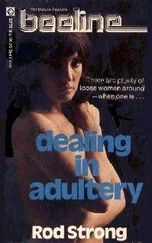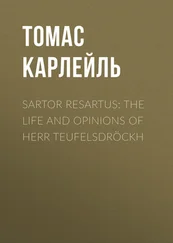Vladimir Nabokov - Strong opinions
Здесь есть возможность читать онлайн «Vladimir Nabokov - Strong opinions» весь текст электронной книги совершенно бесплатно (целиком полную версию без сокращений). В некоторых случаях можно слушать аудио, скачать через торрент в формате fb2 и присутствует краткое содержание. Город: New York, Год выпуска: 1990, Издательство: First Vintage International Edition, Жанр: Классическая проза, на английском языке. Описание произведения, (предисловие) а так же отзывы посетителей доступны на портале библиотеки ЛибКат.
- Название:Strong opinions
- Автор:
- Издательство:First Vintage International Edition
- Жанр:
- Год:1990
- Город:New York
- ISBN:нет данных
- Рейтинг книги:4 / 5. Голосов: 1
-
Избранное:Добавить в избранное
- Отзывы:
-
Ваша оценка:
- 80
- 1
- 2
- 3
- 4
- 5
Strong opinions: краткое содержание, описание и аннотация
Предлагаем к чтению аннотацию, описание, краткое содержание или предисловие (зависит от того, что написал сам автор книги «Strong opinions»). Если вы не нашли необходимую информацию о книге — напишите в комментариях, мы постараемся отыскать её.
Strong opinions — читать онлайн бесплатно полную книгу (весь текст) целиком
Ниже представлен текст книги, разбитый по страницам. Система сохранения места последней прочитанной страницы, позволяет с удобством читать онлайн бесплатно книгу «Strong opinions», без необходимости каждый раз заново искать на чём Вы остановились. Поставьте закладку, и сможете в любой момент перейти на страницу, на которой закончили чтение.
Интервал:
Закладка:
I had not been in Europe since 1940, was not interested in pornographic books, and thus knew nothing about the obscene novelettes which Mr. Girodias was hiring hacks to confect with his assistance, as he relates elsewhere. I have pondered the painful question whether I would have agreed so cheerfully to his publishing Lolita had I been aware in May, 1955, of what formed the supple backbone of his production. Alas, I probably would, though less cheer
I shall now proceed to point out a number of slippery passages and a few guileful inexactitudes in Mr. Girodias' article. For some reason which presumably I am too naive to grasp, he starts by citing an old curriculum vitae of mine which, he says, was sent to him by my agent together with the typescript of Lolita in April, 1955. Such a procedure would have been absurd. My files show that only much later, namely on February 8, 1957, he asked me to send him «all the biographical and bibliographical material» available for his brochure «L'affaire Lolita» (which he published when fighting the ban of the book in France); on February 12,1 sent him photographs, a list of published works, and a brief curriculum vitae. With the sneer of a hoodlum following an innocent passerby, Mr. Girodias now makes fun of such facts in it as my father's having been «an eminent statesman» or the «considerable fame» I had acquired in emigre circles. All this he had published himself (with many embellishments and additions gleaned elsewhere) in his brochure of 1957!
On the other hand, he now tones down substantially his proud recollections of having «edited» Lolita. On April 22, 1960, I had been obliged to write to the editor of The New YorkTimes Book Review (where Mr. Girodias had been comically flattered by a person unknown to me) thus: «Mr. Popkin in his recent article on Monsieur Girodias, the first publisher of my Lolita, says that I 'did some rewriting at Girodias' request.' I wish to correct this absurd misstatement. The only alterations Girodias very diffidently suggested concerned a few trivial French phrases in the English text, such as 'bon' 'c'est moi' 'mats comment' etc., which he thought might just as well be translated into English, and this I agreed to do».
I began to curse my association with Olympia Press not in 1957, when our agreement was, according to Mr. Girodias, «weighing heavily» on my «dreams of impending fortune» in America, but as early as 1955; that is, the very first year of my dealings with Mr. Girodias. From the very start I was confronted with the peculiar aura surrounding his business transactions with me, an aura of negligence, evasiveness, procrastination, and falsity. I complained of these peculiarities in most of my letters to my agent who faithfully transmitted my complaints to him but these he never explains in his account of our tenyearlong (195565) association.
«I hardly received the proofs back» [he received them in July, 1955], writes Mr. Girodias, «when Nabokov sent me a cable [August 29, i.e., after a month of Girodian silence] saying: «When is Lolita appearing. Worried. Please answer my letters' — an entreaty which has been repeated so often in so many cables sent by so many authors to so many [i.e., wise, calm, benevolent] publishers ..». The would-be wit and delightful flippancy of this remark should not fool anybody. Mr. Girodias alludes here to coy emotions typical of a young author hardly ever published before. Actually, at fiftysix years of age, I had had, since 1925, dealings — recurrent dealings — with at least a score of publishers and had never been exposed to anything like the tissue of haggling maneuvers and abstruse prevarications in which Mr. Girodias involves his victims (perhaps not deliberately — it just seems to be part of his bizarre nature). In reality, two specific questions were worrying me, and to them I was getting no answer. The main one of the two was the question of the copyright: the book had to be registered in Washington, in the author's name, and for this purpose I had to know the exact date of publication so as to insert it in the application forms. On October 8, 1955, I received, at last, a copy of the published book, but only on November 28, after some more «entreaties», did I learn that Lolita had been published on September 15, 1955. The second matter was a financial one — and proved to be the leitmotif of what Mr. Girodias terms the «sad, ungraceful history of Lolita». My benefactor had agreed to pay me an advance of 400,000 «anciens» francs (about a thousand dollars), one half on signature of the agreement (dated June 6, 1955), and the other half on publication. He had paid his first half only one month late. My wire did not help to elucidate the date when Mr. Girodias would have to pay the second half. It was easier for him to leave the matter open. I continued reminding him about that second check. I told him (October 5) that UI write for my pleasure, but publish for money». He paid only on December 27, under strong pressure from my agent, and more than three months after the second payment was due.
My copyright worries were not over. «With blithe unconcern» (to use a phrase Mr. Girodias favors) he had added to «Copyright 1955 by V. Nabokov» on the title page of his edition the words «and the Olympia Press». On January 28, 1956, I learned from the copyright Office in Washington that this matey formula (for which 1 had not given my permission) might cause trouble at republication in the U.S. which had to take place within five years. I was advised to get an «assignment or quitclaim» from Mr. Girodias, and this I atfonce asked him to send me. I got no reply (as «so many authors» do not get replies from «so many publishers»), wrote to him again and again, but only on April 20 (i.e., three months later) got from him what I asked. It is interesting to conjecture where Mr. Girodias would have been, when «our» book came out in America, had I not had the foresight to protect it there.
By the beginning of 1957, I had still not received from Olympia any statements of accounts since the publication of the book in September 1955. The lapse entitled me to annul the agreement; (see Clause 9), but I decided to wait a little longer. I had to wait till March 28, 1957, and when it came, the statement did not cover the entire period for which it was due.
The nuisance of non-statements did not fail to resume. By the end of August 1957, I had received none for the first semester of that tear which was due on July 31. On September 2, Mr. Girodias asked for a postponement of two months, and I agreed to wait till September 30, but nothing happened, ami having had enough of that nonsense I advised him (Octobel 5) that all rights had reverted to me. He promptly paid up (44,220 anciens francs), and h relented.
In a particularly nasty and silly passage our memoirist juxtaposes my refusal to defend my book in France from the attack of local magistrates and «Philistine readers» (as I wrote to him on March 10, 1957) with my requesting him (a month earlier) to avoid mentioning «Cornell» when referring to me in publicity splashes as a «university professor». I am not sure what He means specifically. Only a very helical mind could twist my request into a semblance of frailty. By signing Lolita I had shown my complete acceptance of whatever (responsibility an author has to take; but as long as an unhealthy flurry of scandal surrounded my innocent Lolita, I certainly was justified in acting as I did, lest a shadow of my responsibility fall on the university that had given me unbelievable freedom in conducting my courses (they were never meddled with by the department or departments under which they were nominally listed); nor did I care to embarrass the close friend who had brought me there to enjoy that true academic freedom.
Nevertheless Mr. Girodias kept urging me to join him in his campaign against French censorship. «Our interests are identical», he wrote; but they were not. He wanted me to defend Lolita, but 1 did not see how my book could be treated separately from his list of twenty or so lewd books. I did not want to defend even Lolita. He repeats in his article one of his favorite arguments that without him Lolita would have never been published. As I wrote him on August 3, 1957, 1 was (and am) deeply grateful to him tor printing that book. But I must also point out to him that he was not the right person to undertake the thing; he lacked the means to launch Lolita properly — a book that differed so utterly in vocabulary, structure, and purpose (or rather absence of purpose) from his other much simpler commercial ventures, such as Debby's Bidet or Tender Thighs. Mr. Girodias greatly exaggerates his powers. Had not Graham Greene and John Gordon clashed in London in such providential fashion, Lolita — especially its second volume which repelled so-called «amateurs» — might have ended in the common grave of Traveler's Favorites or whatever Olympia's little green books were called.
Читать дальшеИнтервал:
Закладка:
Похожие книги на «Strong opinions»
Представляем Вашему вниманию похожие книги на «Strong opinions» списком для выбора. Мы отобрали схожую по названию и смыслу литературу в надежде предоставить читателям больше вариантов отыскать новые, интересные, ещё непрочитанные произведения.
Обсуждение, отзывы о книге «Strong opinions» и просто собственные мнения читателей. Оставьте ваши комментарии, напишите, что Вы думаете о произведении, его смысле или главных героях. Укажите что конкретно понравилось, а что нет, и почему Вы так считаете.










